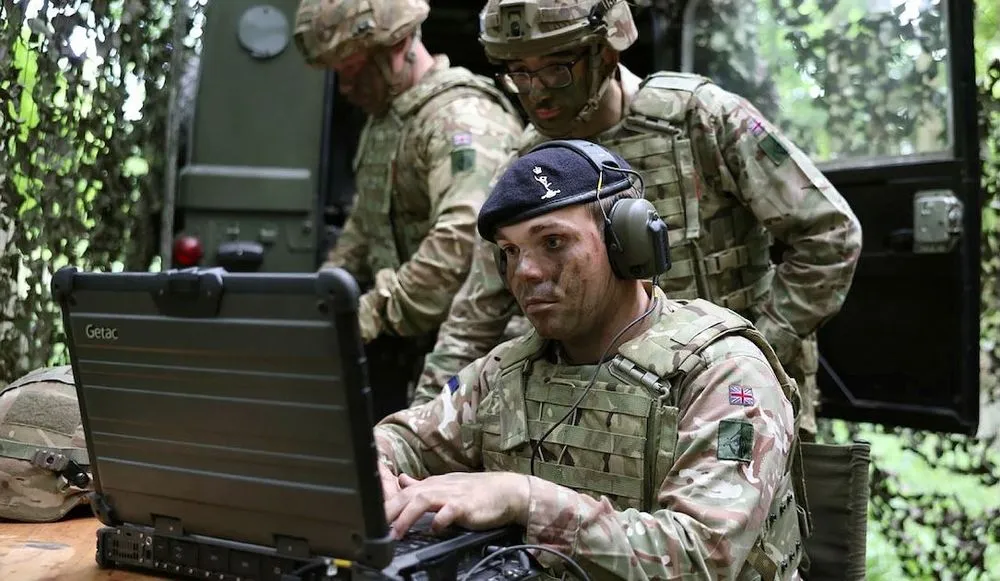UK military to establish new Cyber and Electromagnetic Command
The United Kingdom announced on Thursday its intention to create a new military formation focused specifically on digital and electronic warfare, as a result of the country’s strategic defense review.
Cyber and Electromagnetic Command will sit under Strategic Command — already responsible for the Ministry of Defence’s (MoD) offensive and defensive cyber capabilities, alongside the country’s special forces — and is intended to “lead defensive cyber operations and coordinate offensive cyber capabilities with the National Cyber Force,” according to the MoD.
It comes as the government prepares to publish a strategic defense review launched shortly after the Labour Party was elected. It will establish the priorities for military spending over the coming years and focus on how to address “the threats Britain faces, the capabilities needed to meet them, the state of UK armed forces and the resources available.”
“Ways of warfare are rapidly changing,” said Britain’s defense secretary, John Healey, in a statement. “The hard-fought lessons from Putin’s illegal war in Ukraine leave us under no illusions that future conflicts will be won through forces that are better connected, better equipped and innovating faster than their adversaries.
“We will give our Armed Forces the ability to act at speeds never seen before - connecting ships, aircraft, tanks and operators so they can share vital information instantly and strike further and faster.”
The review is expected to be published on June 2 and to highlight “how daily cyber-attacks are threatening the foundations of the economy and daily life” according to the MoD.
Efforts to deal with this challenge involve encouraging direct recruitment into specialist cyber roles. A new accelerated pipeline announced in February will see cyberwarriors do only an abridged form of basic training — only four weeks instead of the normal 10 — before spending three months learning military cyber skills.
Recruitment is a significant challenge for cyber forces. Gen. Sir Jim Hockenhull, the head of Strategic Command, warned last year: “The first battle of the next war is the battle for talent, particularly the battle for digital talent. I would assess at the moment that we are losing that battle.”
Lt. Gen. Tom Copinger-Symes, the deputy commander of Strategic Command, previously told Recorded Future News: “We're going broke for skills and people quicker than we’re going broke for money.”
Providing military commanders with assurance
The strategic defense review’s recommendation of the new digital and electronic warfare command will describe it as a formation intended to “harness all the Armed Forces’ expertise in electromagnetic warfare” by reorganizing the command structure for existing forces rather than creating new capabilities.
The review stresses that the command will help the military “seize and hold the initiative in a high-tempo race for military advantage — for example, through degrading command and control, jamming signals to drones or missiles and intercepting an adversary’s communications.”
In his speech last year, Hockenhull warned that two decades of deployment in Iraq and Afghanistan meant the British military largely moved away from focusing on capabilities in the electromagnetic domain, aside from what he described as some “niche elements” without providing examples.
He stressed that Russia’s war on Ukraine displayed significant capabilities that, if not protected against, could make uncrewed systems “worthless” alongside guided missiles and rockets, which could be “prevented from having the effect that they would expect.”
He noted questions around how Russia was integrating its cyber and electromagnetic operations into traditional kinetic activities in Ukraine and what lessons Britain’s armed forces could take from those observations.
Part of the challenge is that “we tend to do our cyber and electromagnetic work in compartments or under the cloak of high degrees of secrecy,” which doesn’t contribute to integration, said Hockenhull.
“How do we provide military commanders assurance that the capabilities that are offered to them are going to be there, at the right place, at the right time for them to be integrated into their plans?” he asked.
Without that level of assurance, “cyber and electromagnetic activity will always be added at the last moment and will never be fully exploited or integrated.”
Getting this integration right is critical, said the general.
“This is about seizing opportunities,” he said. “It’s easy to make some remarks around this, delivery is much more difficult. We have to do this together because if we don’t then the sorts of threats which are out there are going to be so much more difficult to confront.”
Alexander Martin
is the UK Editor for Recorded Future News. He was previously a technology reporter for Sky News and a fellow at the European Cyber Conflict Research Initiative, now Virtual Routes. He can be reached securely using Signal on: AlexanderMartin.79



